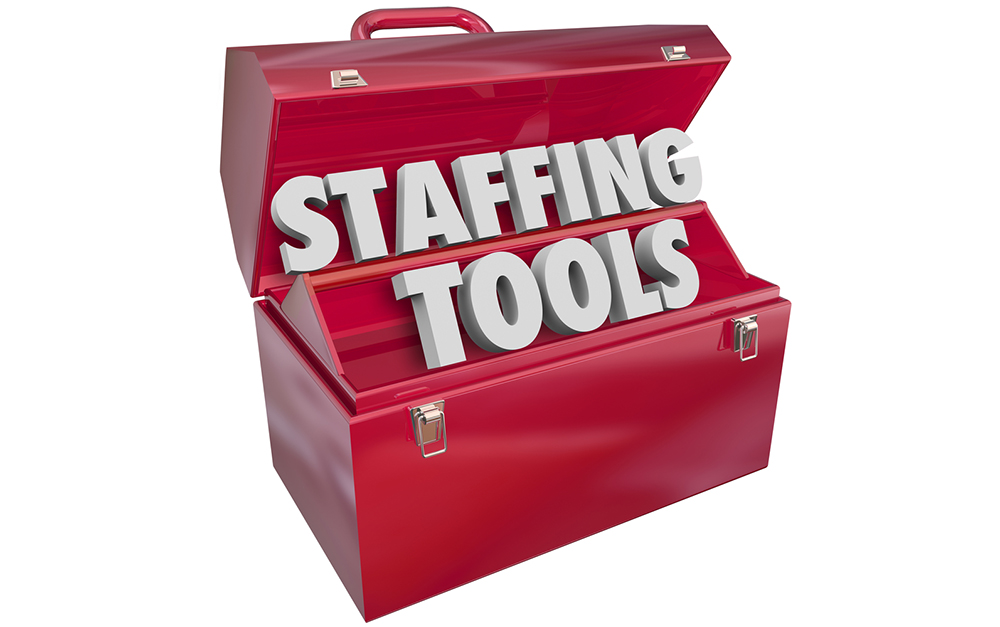The ongoing labor shortage is intensifying the competition for talent, as a record 4.5 million workers quit their jobs in November 2021*. To ensure they meet productivity goals and deadlines, many companies are beginning to reevaluate their hiring practices to get workers to their jobsites more efficiently.
One solution that is catching on is the easing of hiring requirements. The Wall Street Journal recently reported that employers are easing their requirements for education and experience, along with reviewing their approach to background checks.
Which hiring requirements are companies adjusting, and why is speed to hire becoming a primary concern for potential candidates? Here are a few ways how easing hiring restrictions can help companies get talent to work more quickly.
A Candidate’s Market Puts Emphasis on Speed to Hire
Employers were beginning to ease hiring requirements before the labor shortage, but the trend is gaining traction as the shortage lingers.
Workers currently have plenty of options, and companies with antiquated hiring processes are finding themselves at a disadvantage as roles go unfilled, jeopardizing their ability to meet goals and deadlines.
It’s a candidate’s market right now. The candidates who do want to work and are looking for new opportunities want to make a move quickly and aren’t willing to wait long periods of time.
Speed to hire has always been important, but it’s now a critical deciding factor for eager talent seeking quality work and to begin earning quickly.
There are elements beyond a company’s control that impact its speed to hire. Many of the professionals who normally administer drug tests and physicals are now supporting the fight against COVID-19 by assisting with testing and vaccinations. This realignment in the workforce has slowed the testing and background check process, especially in smaller regions.
Identify Which Hiring Procedures Can Be Eliminated
Some testing and background checks are mandatory, but there are measures employers can take to expedite the hiring process.
The loosening of state and local regulations has created new opportunities for companies to expand their talent pool and meet their hiring goals. Many employers have updated their drug testing policy to eliminate THC testing in states where marijuana is legal.
Reducing the time frame for background and credit checks is another way companies can create a wider selection of candidates. We’ve seen several examples of companies lowering their bar for background and credit checks from 7 to 5 years.
Businesses hesitant to alter their drug or background testing policies still have other opportunities to condense their hiring process.
It’s not just about drug test and physicals. It’s also about recognizing you’re putting a candidate through too many interviews before making your decision.
When attempting to speed up the onboarding process, outdated internal processes are sometimes easier to change than how a company conducts background checks. Try condensing your screening and making it about the candidate and the position that needs to be filled.
We’ve worked with clients that have had candidates for a maintenance role take a maintenance test. If the test hasn’t been reviewed internally for 5 to 10 years, is it still relevant and necessary? Does it still give you the information you want?
How to Ensure Quality Talent with Eased Requirements
Adjusting hiring requirements doesn’t mean businesses must compromise on candidate quality. They can optimize their internal hiring processes for the current market conditions.
Companies can condense the process and make it about the candidate and the position that needs to be filled rather than relying on older processes that may hinder progress.
The labor shortage and the trend of easing requirements are both expected to continue throughout 2022. Take the next step in increasing your company’s speed to hire.
Quinn Heimann is a Director of Strategic Sales for Aerotek, Inc., a talent solutions provider. In her current role, Quinn manages client relationships with many of Aerotek’s key customers across North America. Quinn has been with Aerotek since 2011 and has held a multitude of roles overseeing clients in the construction; oil and gas; disaster response; healthcare; life sciences; and, most recently, the consumer products space. In her time as a business development leader, she has been focused on aligning Aerotek’s capabilities with the strategy and focus its clients need in order to be successful. She’s built a strong legacy of developing others and is a creative, focused, and results-driven leader with outstanding organizational and business development skills. Quinn is an avid reader, a wife, and a mother of two who lives in Phoenix, Arizona, when not traveling for the company.

